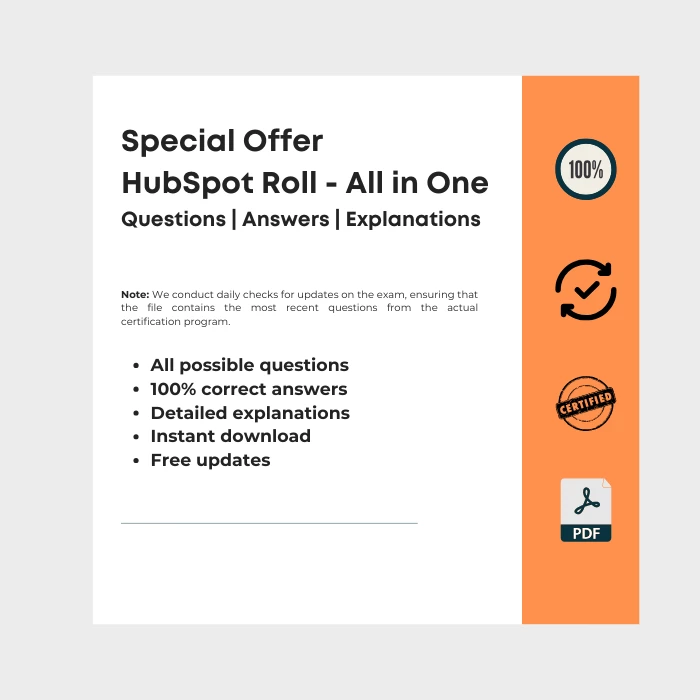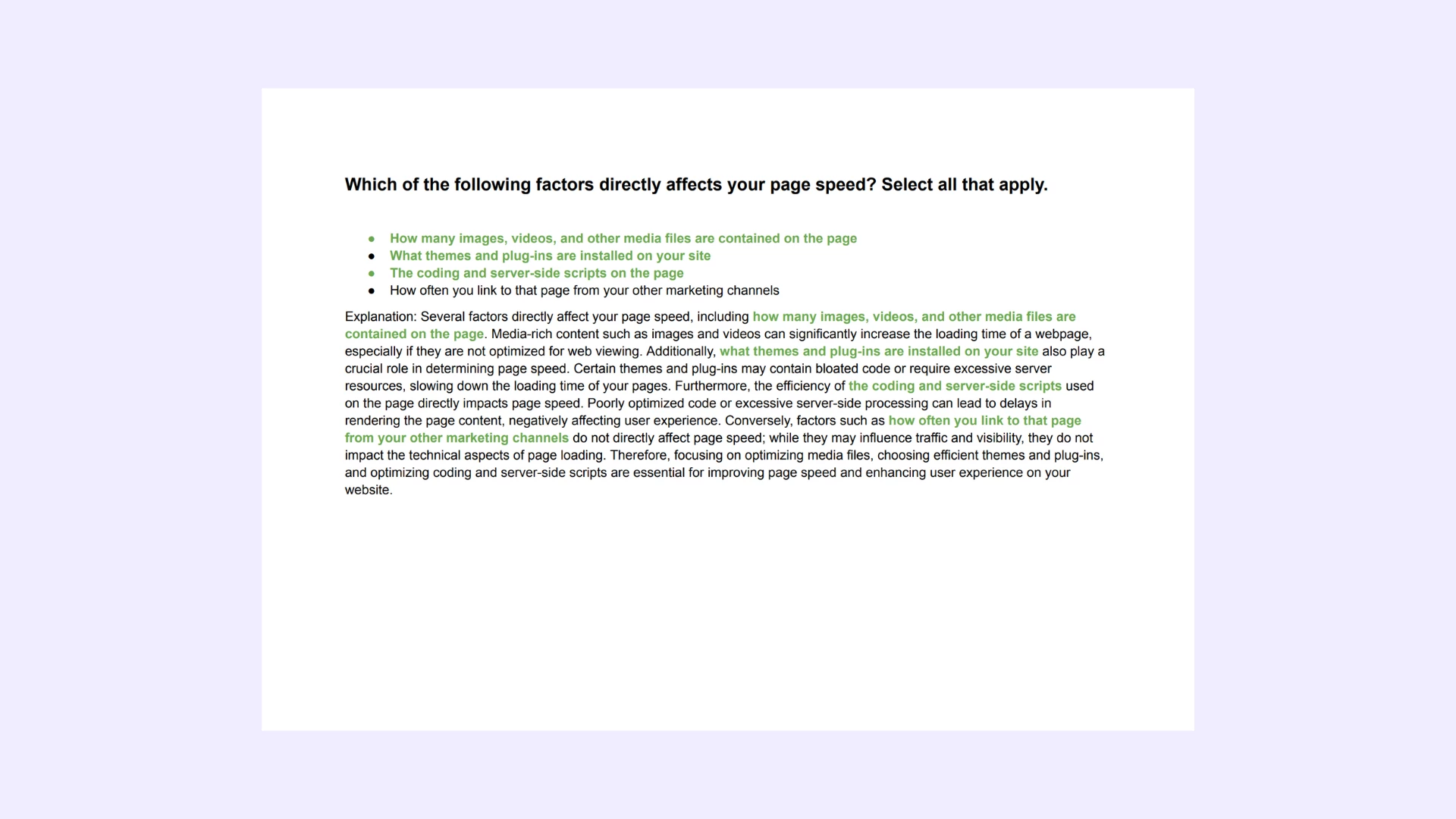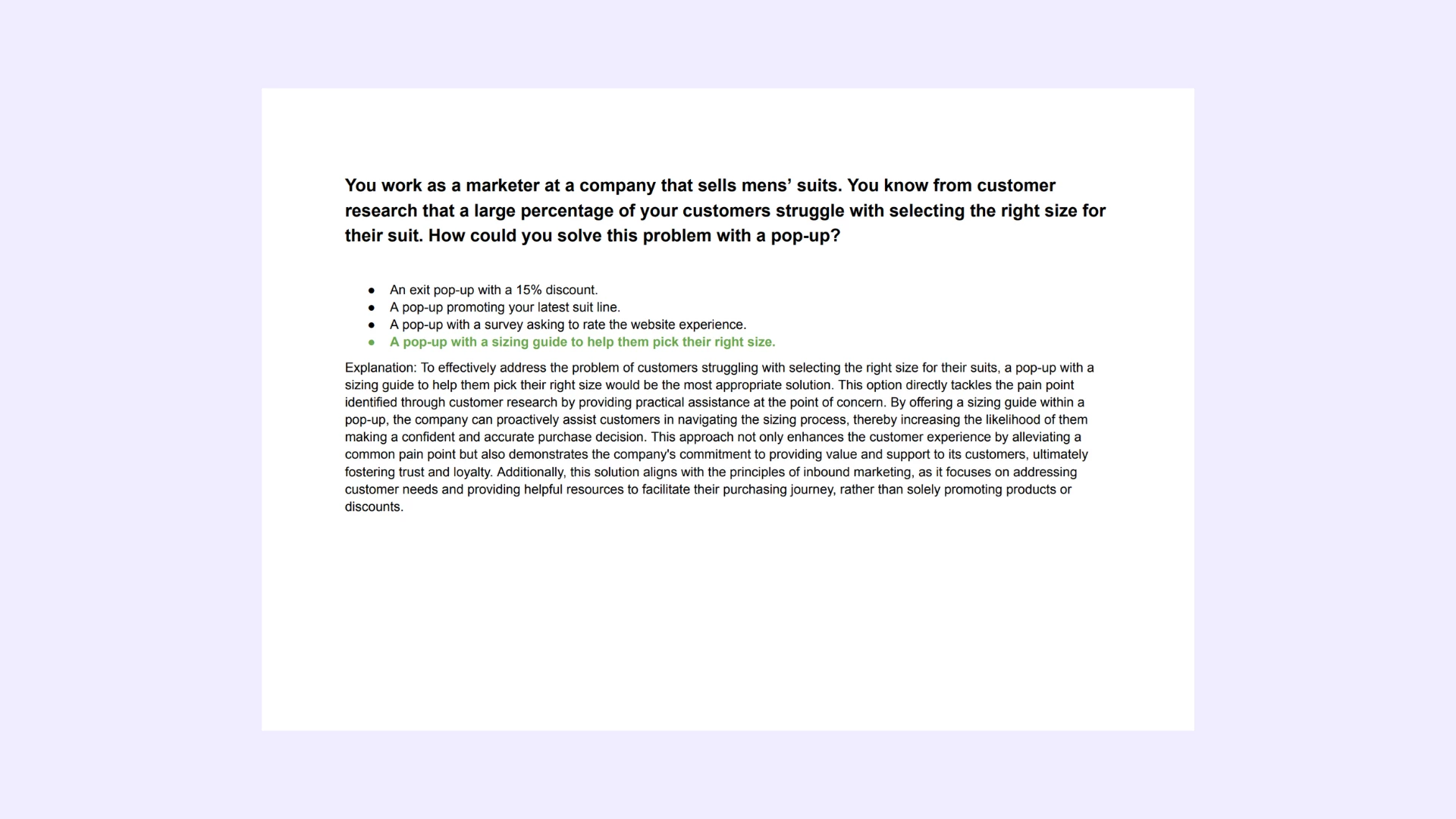Select all that apply. Which of the following should you avoid to reduce a site's crawl budget?
Duplicate content
Navigation menus with over 7 items
Long redirect chains
Infinite spaces

HubSpot Roll. Includes Answers for Every Real HubSpot Certification Exam.
All-in-One: Get all HubSpot exams answers with explanations in one bundle. This package includes answers for every current HubSpot certification. Regular updates to reflect the latest exam version. -> See what's included.


Need a single cerification exam answers? Check out our -> list of certification exams answer keys. Learn Smarter. Obtain or Renew your certificates with peace of mind!
Explanation: Select all that apply. Which of the following should you avoid to reduce a site’s crawl budget?
Explanation: The correct answers are **Duplicate content**, **Long redirect chains**, and **Infinite spaces**. These factors can contribute to inefficiencies in how search engines crawl and index a website, ultimately affecting the site's crawl budget. Duplicate content can confuse search engines and lead to indexing issues, as they may prioritize one version of the content over others or waste crawl budget on redundant pages. Long redirect chains create unnecessary hurdles for search engine crawlers, as each redirect in the chain consumes crawl budget and increases latency, potentially slowing down the crawling process and preventing search engines from reaching deeper pages efficiently. Additionally, infinite spaces, such as infinite scroll or pagination without proper implementation, can result in search engine crawlers endlessly crawling through content, wasting crawl budget on low-value or infinite sections of the website. By avoiding these factors, webmasters and SEO professionals can optimize a site's crawl budget, ensuring that search engines focus their resources on crawling and indexing the most important and relevant pages, ultimately improving the site's visibility and performance in organic search results.

Special Bundle Offer HubSpot Roll. All in One
Note: We conduct daily checks for updates on the exam, ensuring that the file contains the most recent questions from the actual certification program.
Questions | Answers | Explanations. FREE Updates.
You may also be interested:
- Special HubSpot bundle offer - all HubSpot exams in one
- HubSpot CMS for develpers certification exam answers
- HubSpot CMS for develpers II certification exam answers
- HubSpot content hub for marketers certification exam answers
- HubSpot content marketing certification exam answers
- HubSpot contextual marketing certification exam answers
- HubSpot digital advertising certification exam answers
- HubSpot digital marketing certification exam answers
- HubSpot email marketing certification exam answers
- HubSpot frictionless sales certification exam answers
- HubSpot growth driven design certification exam answers
- HubSpot inbound certification exam answers
- HubSpot inbound marketing certification exam answers
- HubSpot inbound marketing optimization certification exam answers
- HubSpot inbound sales certification exam answers
- HubSpot integrating with HubSpot I foundations certification exam answers
- HubSpot marketing hub software certification exam answers
- HubSpot reporting certification exam answers
- HubSpot revenue operations certification exam answers
- HubSpot sales enablement certification exam answers
- HubSpot sales hub software certification exam answers
- HubSpot sales management certification exam answers
- HubSpot sales software certification exam answers
- HubSpot seo certification exam answers
- HubSpot seo II certification exam answers
- HubSpot service hub software certification exam answers
- HubSpot social media marketing certification exam answers
- HubSpot social media marketing II certification exam answers